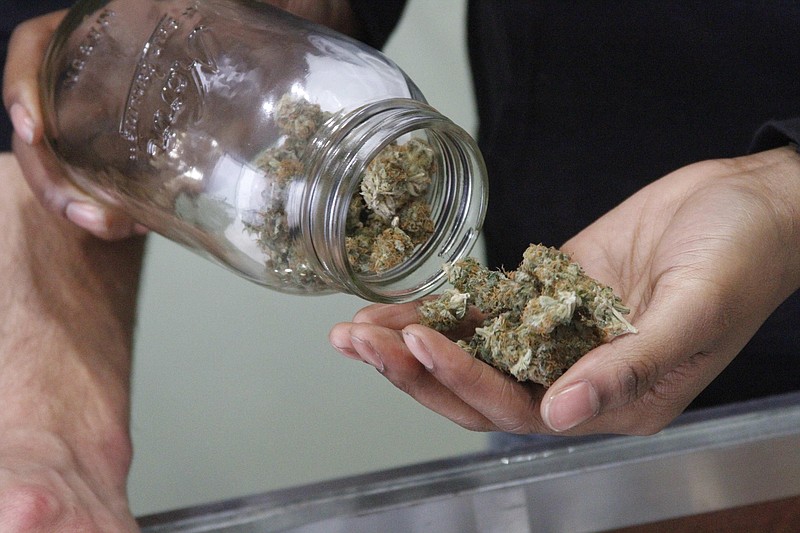At long last, a medical marijuana bill is scheduled to be discussed Wednesday in the Tennessee House Health Committee and also is expected to be presented in the Volunteer State's Senate House and Welfare Committee.
Medical marijuana in oil form has been shown to significantly lessen epileptic seizures, especially in children like 5-year-old Cora Vowell, a local girl who last year suffered an accident that required her to wear a helmet contantly to protect her head against the nine to 12 seizures she now has each day.
Every seizure lessens Cora's mental and emotional growth. Between the illness and her steady intake of psychoactive drugs to combat it, she sleeps through most of her school day and has not learned her ABCs. Her parents want the option to try something else -- something that has worked for other children in other states.
But benefits from the less harmful medical marijauna aren't limited to children or people with seizures. Medical marijuana has been shown to help those with Parkinson's disease, multiple sclerosis, Crohn's disease, Huntington's disease and the pain of terminal cancer.
The bill, introduced and sponsored by Rep. Ryan Williams, R-Cookeville, and Sen. Steven Dickerson, R-Nashville, would allow marijuana to be grown, manufactured in medical products and sold to Tennesseans of all ages who suffer from debilitating medical conditions including epilepsy, terminal cancer and Parkinson's disease.
It would replace or speed up a law passed last year -- sponsored by our own Rep. Mike Carter, R-Ooltewah, that permitted a pilot program to use low-THC marijuana cultivated by Tennessee Technological University as a therapy for epileptic children. Backers of the new bill say the program at Tennessee Tech has stalled, despite clear changes in public and political attitudes about medical marijuana.
Georgia passed legislation last week legalizing cannabis oil in medical treatment. Gov. Nathan Deal says he will sign the bill, making the Peach State the 24th in the nation to permit some kind of marijuana usage. Georgia's bill, however, doesn't allow anyone in the state to grow or produce medical marijuana, meaning eligible users would have to travel to states that can produce and dispense medical marijuana, then bring it back home with them.
It's long past time for medical marijuana -- which is much safer than most prescription painkillers so heavily abused in Tennessee -- to be legalized and regulated.
A Vanderbilt University poll in 2014 showed 76 percent of Tennesseans favor legalizing marijuana in some form, with 32 percent favoring of general legalization and 44 percent favoring only medicinal treatment.
Medical marijuana can be grown to accentuate medical benefits while lowering the "high" of ordinary pot.
Further, the regulations and controls on this new bill, including the strict seed-to-sale tracking and comprehensive state licensing aspects, are more stringent than those of any other state, and only fully-vetted, experienced and well-financed Tennessee-based businesses (capped at six) will be licensed to produce and dispense medical cannabis.
Will passing this encourage crime? Not according to a recent study by the University of Texas in Dallas, which found that there is no correlation between passing medical cannabis legislation and higher rates in crime. In fact, it may even be tied to lower rates of offenses such as assault and murder.
There are scores of medications already on the market that are far more harmful than medical marijuana, or any marijuana for that matter. It is cruel and foolish not to use for good purpose what nature and improving research and technology has to offer.
